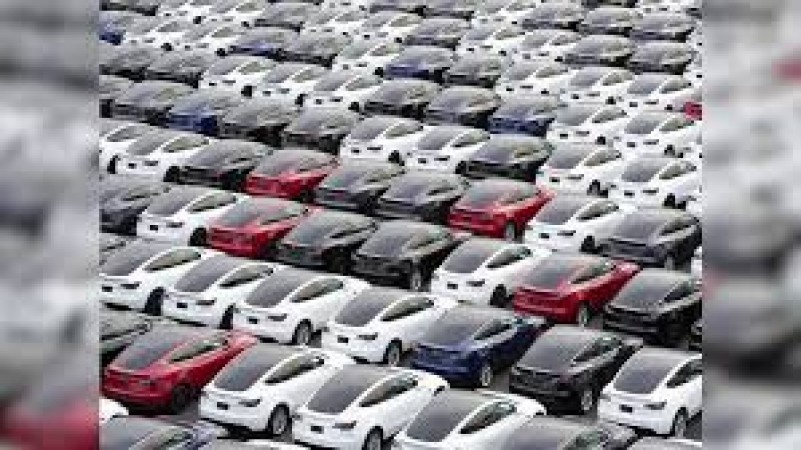
In the rapidly evolving landscape of the automotive industry, the year 2023 marked a significant turning point for electric vehicles (EVs). This period witnessed an unprecedented surge in sales, reflecting a substantial shift towards sustainable and eco-friendly transportation. Let's delve deeper into the key factors, market dynamics, and the global impact of this transformative year.
The automotive world experienced a paradigm shift in 2023 as consumers increasingly embraced the eco-friendly revolution led by electric vehicles. This shift was not merely a reflection of growing environmental awareness but also an acknowledgment of the impressive advancements in EV technology that addressed previous concerns.
One of the primary driving forces behind the surge in EV sales was the continuous evolution of battery technology. In 2023, improvements in energy density, faster charging capabilities, and longer battery life effectively addressed common concerns, making electric vehicles more appealing to a broader audience.
Government incentives and supportive policies around the world provided a substantial boost to the adoption of electric vehicles. Rebates, tax credits, and investments in charging infrastructure made EVs a financially viable and convenient choice for consumers, further accelerating their market penetration.
The expansion of charging infrastructure played a crucial role in alleviating "range anxiety" – a common concern among potential EV buyers. Increased accessibility to charging stations made EV ownership more convenient and practical, fostering a positive environment for potential buyers.
Several electric vehicle models emerged as top performers, captivating the market and securing impressive sales figures.
Tesla's Model 3 continued its reign as the best-selling electric car globally. Its affordability, impressive range, and cutting-edge technology solidified Tesla's position as a leader in the EV market. The company's commitment to innovation and excellence maintained its stronghold in the industry.
The entry of affordable electric vehicles into the market widened the consumer base. Models like the Nissan Leaf and Chevrolet Bolt gained popularity, making electric mobility accessible to a more diverse audience. This shift marked a crucial step towards democratizing electric vehicles and reducing their perception as exclusive to a certain demographic.
Beyond individual success stories, the collective impact of increased EV sales reverberated globally, contributing to a more sustainable and eco-conscious future.
The surge in EV sales played a pivotal role in achieving emission reduction milestones set by various countries. As more traditional vehicles were replaced by electric counterparts, the automotive industry took a significant step towards a greener future. Governments and environmental agencies applauded these positive strides towards meeting climate goals.
Major automakers worldwide intensified their commitment to sustainability, pledging to transition towards electric vehicle production. This shift in focus signaled a long-term commitment to reducing the carbon footprint of the automotive industry. Companies like Volkswagen, BMW, and Ford announced ambitious plans to phase out internal combustion engines, aligning with global sustainability goals.
While the rise in EV sales in 2023 marked a positive trend, the industry faced its share of challenges and opportunities.
Global supply chain disruptions affected the production and delivery of electric vehicles, posing challenges to meet the increasing demand. The industry responded by adapting strategies to enhance resilience and minimize disruptions. Collaboration between manufacturers, suppliers, and governments became crucial to navigate through these challenges and ensure a steady supply of EVs.
The need for faster and more efficient charging solutions became evident. Innovations in charging technology emerged as a focal point for the industry, aiming to reduce charging times and enhance the overall EV ownership experience. Companies invested heavily in research and development to introduce cutting-edge charging solutions, including fast-charging stations and advancements in wireless charging technology.
In conclusion, the year 2023 was undeniably a pivotal moment for electric vehicles. The surge in sales, driven by technological advancements, supportive policies, and environmental consciousness, positions EVs as the frontrunners in the future of transportation. As the industry continues to evolve, the collective efforts towards sustainability and innovation will play a crucial role in shaping the future of mobility, making 2023 a milestone year for electric vehicles.
Vibrant Gujarat Summit Live: Here's How Suzuki Motors Announces Multi-billion Investment Plans
These cars were the leaders of their segment in 2023, customers showered lots of love on them